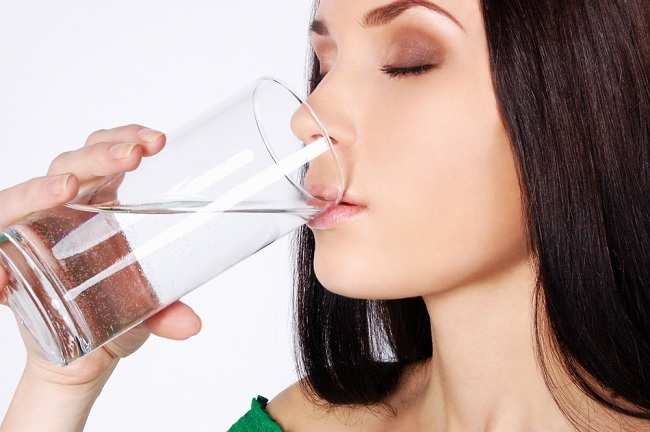Don't know if you don't understand water therapy
Water treatment is claimed to have many health benefits. Some forms of therapy are drinking lots of water, or drinking warm water when you wake up in the morning and before going to bed. However, drinking too much water can also endanger health.
Drinking water has several important benefits, ranging from helping to regulate body temperature to prevent constipation and dehydration. Generally, people who undergo white water therapy drink 1-1.5 liters of water at a time. When you first do therapy, people will usually throw water into the toilet many times until the body adapts to an increase in the amount of fluid.

Consuming large amounts of water is also believed to be a way of detoxification or the process of removing toxins from the body. However, the benefits of detoxification alone have not been proven with certainty. People who undergo detox will consume lots of water and restrict food intake strictly. This can cause the body to lack various essential nutrients. Meanwhile, drinking large amounts of water at once, as in white water therapy, turns out to actually invite intoxication or poisoning.
Be careful of excess fluid
Water intoxication is a condition of salt or sodium levels in the blood drops drastically to levels that are too low, due to drinking too much water in a short time. Symptoms of water intoxication that can occur include nausea, vomiting, headaches, diarrhea, convulsions, cramps or muscle stiffness, to coma.
The process of regulating and removing fluids in the body is regulated by the kidneys. Normally, a healthy young adult's kidney can remove half a liter of water in one hour. If the amount of water you drink exceeds the ability of the kidneys, it will certainly add to the work of the kidney function in processing the liquid. The effect is, you will urinate many times.
Not only that, the decrease in sodium levels in the blood due to dilution by too much water can trigger fluid and electrolyte imbalances in the body's cells. As a result, cells in the body can swell, even worse, brain swelling can occur, requiring medical treatment as soon as possible.
One way to detect fluid adequacy is to look at the color of urine. Deep yellow urine color is a sign that the body is dehydrated. While the color of clear urine like water indicates the body is excess water, and this is also dangerous. You are advised to stop drinking if you feel you are not thirsty.
When Do You Need More Drinking Water?
Daily fluid needs vary by person. This depends on the sex, age, activity, general health condition, and temperature in the surrounding environment. Under normal conditions, the recommended total fluid consumption is 2 to 2.5 liters per day.
The following are some conditions when the body needs more fluid intake:
- Pregnant or breastfeeding
Pregnant women are encouraged to drink ten cups of water or 2.5 liters per day. Meanwhile, breastfeeding mothers need more, which is about 3 liters or 13 cups per day. - Exercise
You need to drink more water to replace lost body fluids during exercise. Add consumption of water as much as 2-3 cups when you exercise. However, if you exercise more intensively, or for more than an hour, you need to consume fluids that contain electrolytes to replace electrolytes that come out of the body with sweat. - Being in a hot temperature environment
Drink more water when in a hot environment and make you sweat a lot. - Suffer from certain health conditions or conditions
When vomiting, diarrhea, and fever, drink more water, because the body needs more fluids. Patients with infection or urinary tract stones are also advised to drink more water to help remove germs and stones from the urinary tract. However, limit your intake of drinking water, if you are experiencing liver disorders, kidney disease, and heart failure.
Water therapy that recommends drinking lots of water at once, is questionable, because it can invite risk harmful to the body. Drink enough water as needed, and within a reasonable time frame, so as not to experience water intoxication. Easy, drink water when you feel thirsty. Don't ignore thirst, because it is a natural signal that the body needs fluids.